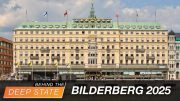As awareness grows of the international establishment’s globalist plotting against liberty and national sovereignty, problems on the road toward a “New World Order” are becoming increasingly obvious, and opposition is surging in tandem. It seems that insider bigwigs are getting nervous. Changes in strategy may be forthcoming as a result. Still, as a recent “analysis” by establishment spokesman Henry Kissinger (shown) makes clear, the powerful forces of globalism and totalitarianism have no intention of backing down from their plot to impose their “New World Order” on humanity.
Former Secretary of State and national security adviser Kissinger — a key front man for a powerful movement aiming to impose what he and other globalists refer to as a “New World Order” — recently outlined some of the establishment’s concerns. In a piece published on August 29 in the Wall Street Journal, headlined “Henry Kissinger on the Assembly of a New World Order,” the prominent foreign policy Machiavellian also proposed the acceleration of efforts to impose global governance on humanity.
Adapted from a soon-to-be-released book on the subject of “World Order,” Kissinger’s analysis purports to identify various speed bumps on the road toward the globalist vision of planetary government. It then offers some policy prescriptions to overcome them, buried between the lines of unexciting and opaque writing. And it warns about what may befall the world if humanity refuses to submit to the global order pushed by Kissinger and company.
“The concept of order that has underpinned the modern era is in crisis,” argued the globalist apparatchik. As evidence, he cited the planned collapse of Libya after being “liberated” by the United Nations and Obama; the Islamic State’s efforts to impose a “caliphate” in the Middle East (without mentioning the crucial role played by the U.S. government and its allies in creating the threat to begin with); and alleged tensions between Russia and the West. Again without mentioning the U.S. government or his own role in the trends, Kissinger also points to “a relationship with China divided between pledges of cooperation and public recrimination.”
One of the key problems, Kissinger’s analysis falsely suggests, is that many of the world’s ruling governments and dictatorships never fully embraced the globalist “New World Order” scheming pushed by the Western establishment. “Vast regions of the world have never shared and only acquiesced in the Western concept of order,” he wrote. In reality, as The New American and countless scholars have documented, even the regimes he implies are hostile to the Western establishment’s vision of “world order” are largely the product of that same establishment — including the brutal regime ruling mainland China.
They all seem to be largely on the same page, too. Just this summer, for example, the Communist Chinese dictatorship and more than 130 Third World regimes in the G77 signed a declaration calling for what they termed a “New World Order to Live Well.” While taking shots at Western governments for not re-distributing enough taxpayer wealth to their regimes, the massive screed outlines essentially the same vision of a “New World Order” pushed openly by Western globalists such as Kissinger. Even UN boss Ban Ki-moon joined the festivities in Bolivia and celebrated the declaration and the renewed Third World push for the world order, complete with global governance and regional regimes under the UN itself.
“The order established and proclaimed by the West stands at a turning point,” Kissinger continued, citing, firstly, challenges to the “nature of the state.” His first example is the globalist-orchestrated attack on national sovereignty that has essentially imposed a transnational, unelected, unaccountable regime on the formerly independent peoples of Europe — without even a semblance of public consent. Kissinger, though, frames the top-down attack in a different light. “Europe has set out to transcend the state and craft a foreign policy based primarily on the principles of soft power,” he claims, giving the false impression that “Europe,” rather than the establishment ruling over it, was behind the radical scheme.
Now, however, Kissinger implies without saying it directly, that the controversial European Union must usurp even more power, wealth, and liberty from the peoples and formerly sovereign nations its unelected bureaucrats rule from Brussels. “It is doubtful that claims to legitimacy separated from a concept of strategy can sustain a world order,” the establishment operative declared. “And Europe has not yet given itself attributes of statehood, tempting a vacuum of authority internally and an imbalance of power along its borders.” In other words, turn the EU into a true “state” — despite the fact that Europeans have repeatedly rejected such machinations — or face various crises and horrors.
“The economic system has become global, while the political structure of the world remains based on the nation-state,” Kissinger complained. “The international order thus faces a paradox: Its prosperity is dependent on the success of globalization, but the process produces a political reaction that often works counter to its aspirations.” In other words, globalists are worried that the public backlash — or “political reaction,” as Kissinger put it — to the “international order” created partly by Kissinger and his radical comrades is growing and must be dealt with.
Kissinger acknowledges the almost absurd amount of “multilateral forums” proliferating all over the world today, many of which have been explored in depth in these pages and almost all of which depend on the continued usurpation of national sovereignty and wealth for their existence. However, in his analysis, the former secretary of state argues that the time has come to take the emerging world order to the next level. “A contemporary structure of international rules and norms, if it is to prove relevant, cannot merely be affirmed by joint declarations; it must be fostered as a matter of common conviction,” he wrote.
Then, Kissinger hints at what may be in store for humanity if it continues to resist the imposition of a “structure of international rules and norms” — a phrase that sounds suspiciously like world government. “The penalty for failing will be not so much a major war between states (though in some regions this remains possible) as an evolution into spheres of influence identified with particular domestic structures and forms of governance,” he said. “At its edges, each sphere would be tempted to test its strength against other entities deemed illegitimate. A struggle between regions could be even more debilitating than the struggle between nations has been.”
Using opaque language, Kissinger also essentially spelled out the globalist road map going forward: Rather than creating a global government all at once, dividing up the world’s peoples and nations into various “regions” ruled by regional regimes must come first. “The contemporary quest for world order will require a coherent strategy to establish a concept of order within the various regions and to relate these regional orders to one another,” he explains.
As readers of this magazine know well, the trends are already obvious. In Europe, the EU now totally dominates policymaking. In North America, globalists are openly boasting that, using NAFTA as the foundation, a new regional regime is being empowered that will end U.S. sovereignty and independence. In Latin America, the Middle East, Asia, Africa, and worldwide, the same phenomenon is taking place in full public view. Consider the African Union and the Union of South American States, for example. Only the end-game remains concealed from full public view — and just barely.
“You really have to read between the lines to understand what Dr. Kissinger is saying,” explained analyst Anthony Wile at the market-oriented Daily Bell, which specializes in reading between the lines and exposing globalist memes. “Dr. Kissinger and his backers want more comprehensive global government. Some of the chaos in the world today is certainly due to THEIR actions and their determination to create or sustain warfare in troubled regions of the world. Kissinger is being disingenuous by not admitting to that. He is also being disingenuous by not being clear about the seeming remedy: Reducing or eliminating parts of the [U.S.] Constitution (formally or not), that don’t ‘fit’ with the political systems of other regions.”
The end game, Wile suggests, is summarized in Kissinger’s call for “international rules,” which, of course, would necessarily require international rulers. The other key point is Kissinger’s urging the “United States” to reflect upon its “celebration of universal principles” while paring those “with recognition of the reality of other regions’ histories, cultures and views of their security.” Wile believes that is a call to further shred what remains of Americans’ constitutionally guaranteed rights to make an eventual global merger with the rest of the world more seamless.
Kissinger’s analysis also illustrates concerns about “how globalist aspirations are being damaged,” Wile argued. However, the piece also likely serves as a “policy statement” rather than a mere editorial, the liberty-minded analyst noted in his breakdown of Kissinger’s latest piece. Going forward, as the globalist-fueled trends highlighted by Kissinger accelerate — chaos, bloodshed, financial turmoil, and more — the “recommendations” are likely to morph into more concrete demands, he said. “Finally, if history shows us anything it is that the kinds of reconfigurations and centralization being suggested here are rarely bloodless or painless, despite the sanitary nature of the language,” Wile concluded.
Indeed, as the globalists continue to centralize, the public backlash is becoming increasingly fierce. In Europe, for example, recent elections to the European pseudo-Parliament delivered massive victories to anti-EU parties in France, the United Kingdom, and other key nations despite relentless globalist propaganda and fear-mongering. Meanwhile, around the world, secession fever — as contrasted with globalist efforts to further centralize power — is raging with increasing ferocity. Kissinger’s latest writings offer important insight into the plans of the establishment to deal with it all. Regionalization seems to be the chosen mechanism, for now.
Americans who support individual liberty, biblical Christianity, national independence, free markets, the Constitution, and other traditional U.S. values ought to study Kissinger’s words carefully. The “New World Order” and the “regions” he and his fellow globalists are pushing are not a new idea — and for the overwhelming majority of humanity, its fruits have been and will be disaster.
Photo of Henry Kissinger: AP Images
Alex Newman, a foreign correspondent for The New American, is currently based in Europe. He can be reached at [email protected]. Follow him on Twitter @ALEXNEWMAN_JOU.
Related articles:
Kissinger Urges Obama to Build a “New World Order”
As Globalists Centralize, Secession Fever Grows Worldwide
China, G77 Tyrants, and UN Boss Demand “New World Order”
Kissinger, Putin, and the “New World Order”
Kissinger Sings Convergence Theme With China’s “Red Song” Choir
CIA Documents: Kissinger Covered Up PLO Assassination of U.S. Ambassador
The EU: Regionalization Trumps Sovereignty
Globalists Push EU-style “Union” for Middle East
“After America Comes North America,” Gen. Petraeus Boasts
The United Nations: On the Brink of Becoming a World Government




